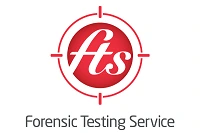Sponsored articles
Unlocking legal talent
Jonathan Bourne of Damar Training sets out why in-house council teams and law firms should embrace apprenticeships.
How hair strand testing should be instructed for family court proceedings
For years, FTS, a drug, alcohol and DNA lab in Yorkshire, has been advocating for an end to the use of Society of Hair Testing (SoHT) cut-off levels in the family courts, writes Paul Hackett (Sponsored Editorial)
39 Essex Chambers publishes guidance for social workers on application of inherent jurisdiction of High Court to adults
39 Essex Chambers has published a guidance note for social workers and those working in front-line settings that provides an overview of the inherent jurisdiction of the High Court as it applies to adults.
- Details
The guidance, which can be viewed here, sets out (a) when it is appropriate to seek to obtain orders from the High Court; and (b) key procedural matters relating to such applications.
It covers:
- What is the inherent jurisdiction?
- When is it appropriate to use the inherent jurisdiction?
- Before making the application: will the person be deprived of their liberty? Is the interference with the person’s rights necessary and proportionate? Will any orders be directed against the person?
- Procedural matters.
- Other uses of the inherent jurisdiction.
- Useful resources.
The chambers stresses that the document cannot take the place of legal advice. “In any case of doubt as to the principles or procedures to apply, it is always necessary to consult your legal department. This is important as the law in this area is evolving rapidly.”
Related Articles



































